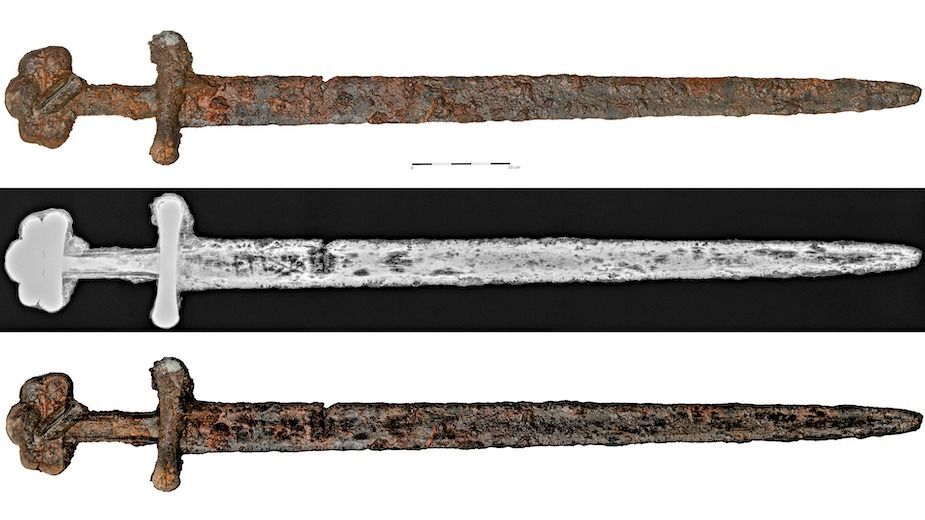Workers made a surprising discovery in Poland when they pulled an early medieval sword from a muddy riverbed while dredging, and some researchers think the weapon could have a Viking connection.
The 1,000-year-old sword, which is thought to be older than Poland itself, was found cloaked in silt and in “near perfect” condition in the depths of the Vistula (also spelled Wisła) River, which runs through Włocławek, a city in northern Poland, according to Warsaw Point, a Polish magazine.
I’ll focus on the name Ulfberth. It’s clearly Germanic, but probably continental; I don’t think that it’s Old Norse (Viking).
A lot of proper Germanic names are noun+adjective constructions, like this one. And the name is clearly “bright wolf” - or “Wolfbright” if you will. However:
- Old Norse often broke Proto-Germanic *e into /ja/. Including in the second word, *berhtaz→bjatr.
- While /wu/→/u/ is often associated with ON, semivowels merging into a vowel with similar quality is that sort of sound change that happens all the time, so it is not good evidence that it’s Old Norse instead of, say, some Low West Germanic variety.
- I’d expect the nominative -r or the accusative -an after the second element, depending on the citation form. Neither is there. On the other hand, it seems that West Germanic varieties typically got rid of the -az in *berhtaz, and the result was rather similar to the one in the sword.
Given the date I’d guess that our Ulfberth guy was from the
Unholy German Clusterfuck“Holy” “Roman” “Empire”. (inb4 Voltaire) The Piast dynasty interacted quite a bit with them anyway.I’m picturing some drunk guy fumbling his sword into a freezing river and just yelling whatever the equivalent of “Fuuuuuck!!” would be.
Strange women lying in ponds distributing swords is no basis for a system of government…
Removed by mod
Yes but I would still be 👑
near perfect
Carrying a lot of weight there
Removed by mod




